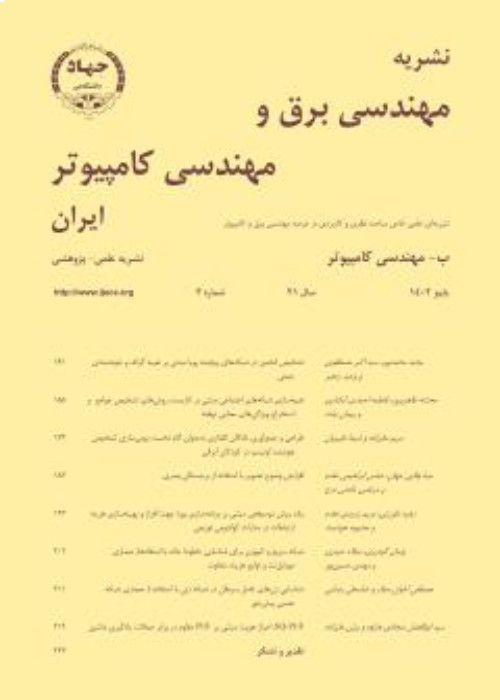Speech Coding Using Non-linear Prediction Based on Volterra Series Expansion
Author(s):
Abstract:
In recent years there has been a growing interest to employ non-linear predictive techniques and models in speech coding to further reduce bit-rate and therefore channel bandwidth. Usually neural nets are used for this purpose that result in an additional up to 3dB reduction in the excitation signal energy. Non-linear prediction can also be performed based on Volterra series expansion wherein the expansion is usually limited to first and second terms, for simplicity (quadratic prediction). Early studies have shown that employing Volterra filters results in a much higher reduction in excitation signal energy (6 to 10 dB), as compared with neural nets. But, because of instability, this reduction can not be materialized in terms of bit-rate reduction or signal to noise improvement. This instability in the decoder is triggered by computational errors (i.e. due to quantization of the excitation signal) and high sensitivity of algorithms to these errors. In the original work, presented here, the instability in the codec is studied in both forward and backward prediction schemes using LS and LMS algorithms respectively. It is shown that stability can be obtained at the cost of losing most of saving in excitation signal energy where final reduction level is as much as for neural nets. With forward prediction, after stabilizing, in spite of a small increasing in the operational complexity for 20 to 45% of frames including the quadratic term will be beneficial. So a scheme is developed to perform non-linear prediction only on these frames. This algorithm results in an improvement of up to 4 dB in final signal to noise ratio. Sequential backward quadrant prediction, although much more interesting from implementation point of view, does not lead to an appreciable better performance over linear prediction.
Language:
Persian
Published:
Iranian Journal of Electrical and Computer Engineering, Volume:5 Issue: 1, 2007
Page:
3
magiran.com/p440688
دانلود و مطالعه متن این مقاله با یکی از روشهای زیر امکان پذیر است:
اشتراک شخصی
با عضویت و پرداخت آنلاین حق اشتراک یکساله به مبلغ 1,390,000ريال میتوانید 70 عنوان مطلب دانلود کنید!
اشتراک سازمانی
به کتابخانه دانشگاه یا محل کار خود پیشنهاد کنید تا اشتراک سازمانی این پایگاه را برای دسترسی نامحدود همه کاربران به متن مطالب تهیه نمایند!
توجه!
- حق عضویت دریافتی صرف حمایت از نشریات عضو و نگهداری، تکمیل و توسعه مگیران میشود.
- پرداخت حق اشتراک و دانلود مقالات اجازه بازنشر آن در سایر رسانههای چاپی و دیجیتال را به کاربر نمیدهد.
In order to view content subscription is required
Personal subscription
Subscribe magiran.com for 70 € euros via PayPal and download 70 articles during a year.
Organization subscription
Please contact us to subscribe your university or library for unlimited access!


